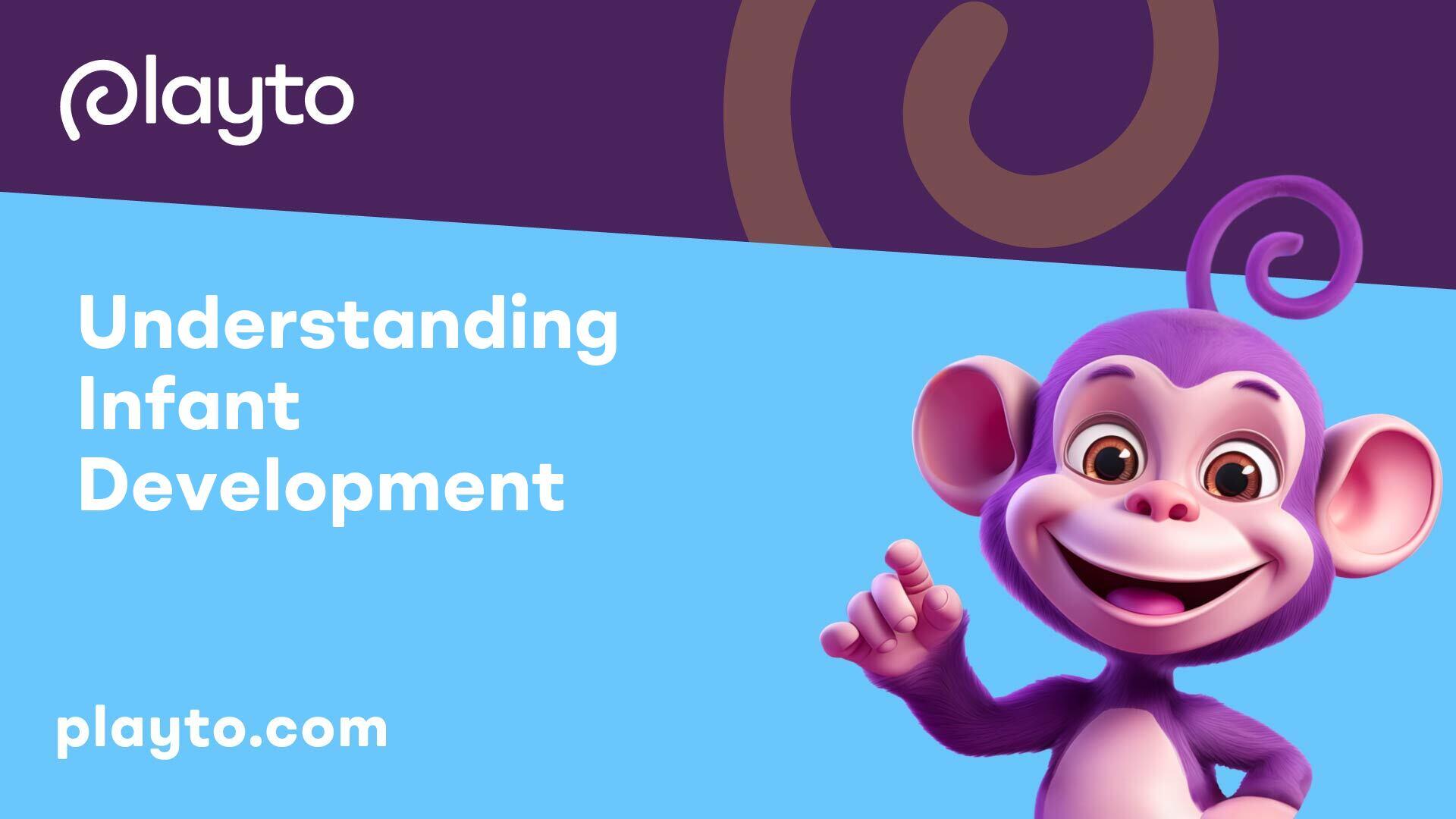
Understanding Infant Development
When it comes to infant development, understanding developmental milestones is essential for parents and caregivers. These milestones encompass various skills and behaviors that children typically achieve at specific ages, indicating healthy growth and development. It's important to recognize and celebrate these milestones as they highlight the progress of infants in areas such as playing, learning, speaking, behaving, and moving.
Developmental Milestones Overview
Developmental milestones for infants include significant achievements such as taking a first step, smiling for the first time, waving "bye-bye," and more. These milestones serve as markers for assessing a child's progress in different aspects of their development [1].
MilestoneAge RangeSmiling for the first time6-8 weeksRolling over4-6 monthsSitting up without support6-8 monthsCrawling8-10 monthsStanding upright with support10-12 monthsTaking first steps (walking)12-15 months
Importance of Developmental Monitoring
Developmental monitoring is a process that involves observing how a child grows and changes over time, as well as assessing whether they meet the expected developmental milestones. Parents, grandparents, early childhood providers, and other caregivers can actively participate in developmental monitoring to track the child's progress and identify any potential areas of concern.
Regular developmental monitoring not only helps in celebrating a child's achievements but also plays a crucial role in early intervention if there are any developmental delays or issues. By staying informed about the typical milestones and seeking support if needed, caregivers can provide the best support for the infant's growth and development.
Understanding and monitoring developmental milestones are foundational aspects of infant care that promote healthy development and well-being. By paying attention to these key markers and seeking guidance when necessary, parents and caregivers can ensure that infants reach their full potential during their crucial early years of growth.

Effective Daycare Practices
In a daycare setting, implementing effective practices is crucial to support the development and well-being of infants. Two key aspects of effective daycare practices are developmentally appropriate teaching and play-based learning strategies.
Developmentally Appropriate Teaching
Developmentally appropriate teaching practices in early childhood education are tailored to meet the needs of each child based on their age, individual characteristics, and family background. Educators in daycare centers strive to enhance the development and learning of infants by creating an environment that supports their growth and exploration.
When it comes to infants in daycare, developmentally appropriate teaching involves understanding their unique developmental stages and providing activities that stimulate their sensory experiences, motor skills, and cognitive development. By adapting the curriculum, activities, and materials to suit the abilities and interests of each child, educators ensure that all infants have the opportunity to engage and learn at their own pace.
To learn more about how daycare can stimulate a baby's senses, check out our article on how daycare stimulates babies' senses.
Play-Based Learning Strategies
Play is a fundamental aspect of early childhood development, and daycare centers often incorporate play-based learning strategies to foster children's joy, wonder, and exploration. Infants learn through play, making it an essential component of their developmental journey. Play-based learning allows infants to engage in self-directed play, guided play, and receive direct instruction in a fun and interactive manner.
In daycare environments, play-based learning activities are designed to encourage infants to explore their surroundings, interact with others, and develop fundamental skills such as hand-eye coordination, social skills, and language development. Through play, infants can enhance their creativity, problem-solving abilities, and emotional regulation.
To read more about the importance of playtime in daycare for infants, refer to our article on infant playtime in daycare.
By implementing developmentally appropriate teaching methods and play-based learning strategies, daycare centers create a nurturing and stimulating environment where infants can thrive and reach important milestones in their development journey.

Daycare Environment and Curriculum
When it comes to providing the best care for infants in daycare, creating a nurturing environment and implementing a well-rounded curriculum are essential. Let's explore how personalized care plans and well-rounded developmental activities play a crucial role in supporting the growth and development of infants.
Personalized Care Plans for Infants
High-quality daycare centers prioritize personalized care plans for infants to ensure that each child's unique needs are met. These care plans may include nutritional guidelines, allergies, family preferences, feeding and sleep schedules, and other specific requirements. Furthermore, assigning each infant a primary caregiver fosters one-on-one bonding and support for skill-building.
Creating individualized care plans allows daycare providers to tailor their approach to meet the specific needs and preferences of each infant. This personalized care helps infants feel safe, secure, and well-cared for, contributing to their overall well-being and development.
Well-Rounded Developmental Activities
Infants in daycare benefit greatly from engaging in well-rounded developmental activities that support various aspects of their growth and learning. These activities should encompass a range of experiences, including reading, art, sign language, exploration of natural and everyday objects, outdoor play, and skill-building exercises that promote developmental milestones like crawling, sitting, and walking.
A diverse array of activities ensures that infants have the opportunity to explore and develop their cognitive, motor, social-emotional, and linguistic skills. Through hands-on experiences and guided play, infants can actively participate in their own development, laying a solid foundation for future learning and growth.
By incorporating personalized care plans and well-rounded developmental activities into the daycare environment and curriculum, providers can create a supportive and enriching experience for infants. These practices not only enhance the quality of care but also contribute to the holistic development and well-being of each child under their supervision.
Parent Expectations and Involvement
Parents play a pivotal role in their child's early development, especially when their infants are enrolled in daycare. Understanding the expectations from daycare centers and actively participating in developmental monitoring are key components of fostering a supportive learning environment for infants.
Expectations from Daycare Centers
Parents expect daycare centers to provide a safe, nurturing, and enriching environment for their children. They entrust daycare providers with the well-being and development of their infants, expecting them to create a setting conducive to growth and learning. Parents look for daycare centers that offer age-appropriate activities, a caring staff, and opportunities for social interaction and exploration.
Daycare centers are expected to communicate effectively with parents, sharing information about their child's daily activities, milestones achieved, and any concerns or issues that arise. Open and transparent communication between daycare centers and parents is essential for building trust and ensuring that parents remain engaged in their child's daycare experience.
Involvement in Developmental Monitoring
Active involvement in developmental monitoring is crucial for parents to track their child's progress and identify any potential developmental delays early on. Your childcare provider can be a valuable source of information on how your child develops [2]. Developmental screening is recommended for all children during regular well-child visits at specific ages by the American Academy of Pediatrics (AAP).
By actively participating in developmental monitoring, parents can work collaboratively with daycare providers to support their child's development and address any concerns that may arise. Regular communication with daycare staff about milestones, behaviors, and interactions can help parents gain insights into their child's progress and ensure that they are meeting age-appropriate milestones.
Engaging in discussions with daycare providers about developmental goals and strategies for supporting your child's growth can enhance the daycare experience for both the child and the parent. By working together with the daycare center, parents can create a supportive and enriching environment that nurtures their infant's development and sets the foundation for lifelong learning.
For more information on infant milestones in daycare and tips for supporting your child's growth and development, explore our resources on infant feeding support in daycare and parent tips for infant daycare.
Assessment and Progress Reporting
Ensuring effective assessment and progress reporting in daycare settings is crucial for monitoring and communicating a child's developmental milestones. Daycare report cards play a significant role in providing families with evaluations and updates on their child's progress over an extended period. These reports offer a comprehensive overview of the child's developmental journey, highlighting various areas of growth.
Daycare Report Cards Overview
Daycare report cards serve as a bridge between educators and families, offering a detailed evaluation of a child's development. Unlike daily reports that focus on day-to-day behaviors and improvements, daycare report cards track progress over more extended periods, such as a month or a quarter.
These reports typically cover crucial areas of development, including social-emotional skills, language development, cognitive abilities, and physical progress. By assessing these facets, daycare professionals can provide a holistic view of a child's overall development, aiding parents in understanding and supporting their child's growth journey.
Tips for Writing Insightful Reports
When preparing daycare progress reports, educators should consider several key factors to ensure the effectiveness and impact of the information shared. Here are some tips for writing insightful daycare reports:
By following these tips and structuring daycare report cards using templates that focus on cognitive, social-emotional, language, and behavioral aspects, educators can provide families with valuable insights into their child's development. Through clear evaluation criteria and thoughtful assessment, daycare report cards become powerful tools for fostering communication and collaboration between educators and parents.
Supporting Physical Development
In nurturing the physical development of infants and toddlers, it is imperative to provide them with ample opportunities for movement and exploration, as well as expose them to a variety of sensory experiences.
Opportunities for Movement and Exploration
To foster the development of new physical skills, infants and toddlers should be encouraged to engage in a range of interactions and experiences facilitated by attentive adult caregivers. These interactions should encompass opportunities for movement and exploration, allowing infants to touch, grasp, mouth, shake, and pick up interesting objects. Through these activities, infants progress from crawling to pulling up, walking, climbing, jumping, and eventually running.
Developmental StageActivitiesCrawlingEncouraging exploration on hands and knees.Pulling upProviding stable objects for standing and cruising.WalkingCreating safe spaces for independent first steps.Climbing, Jumping, RunningOffering opportunities for active play and exploration.
Regular outdoor play is particularly beneficial for infants and toddlers, as it stimulates their imaginations, reduces stress levels, and cultivates respect for themselves and others. Outdoor play not only enhances sensory learning but also contributes significantly to overall developmental growth.
Importance of Sensory Experiences
Sensory experiences play a vital role in the physical development of toddlers. Engaging in activities such as playing with materials at sand and water tables helps strengthen muscles and enhance fine-motor skills, such as using spoons and cups during mealtime. This hands-on approach supports the development of coordination and dexterity, essential for various daily tasks.
Caregivers should aim to incorporate daily opportunities for infants and toddlers to interact with living things like plants and classroom pets. These interactions not only enrich sensory learning experiences but also promote neural connections within the brain, facilitating cognitive development. By observing each child's reactions to different sensory experiences, caregivers can tailor activities to suit individual preferences and comfort levels, ensuring a safe and engaging learning environment.
Emphasizing movement and exploration alongside sensory experiences in daycare settings provides infants and toddlers with the necessary stimuli to enhance their physical development, cognitive skills, and overall well-being. By fostering a nurturing environment that encourages active participation and sensory engagement, caregivers can support each child's unique developmental journey from infancy through toddlerhood.
References
[2]:
[3]:
[4]:
[5]:
[6]:
